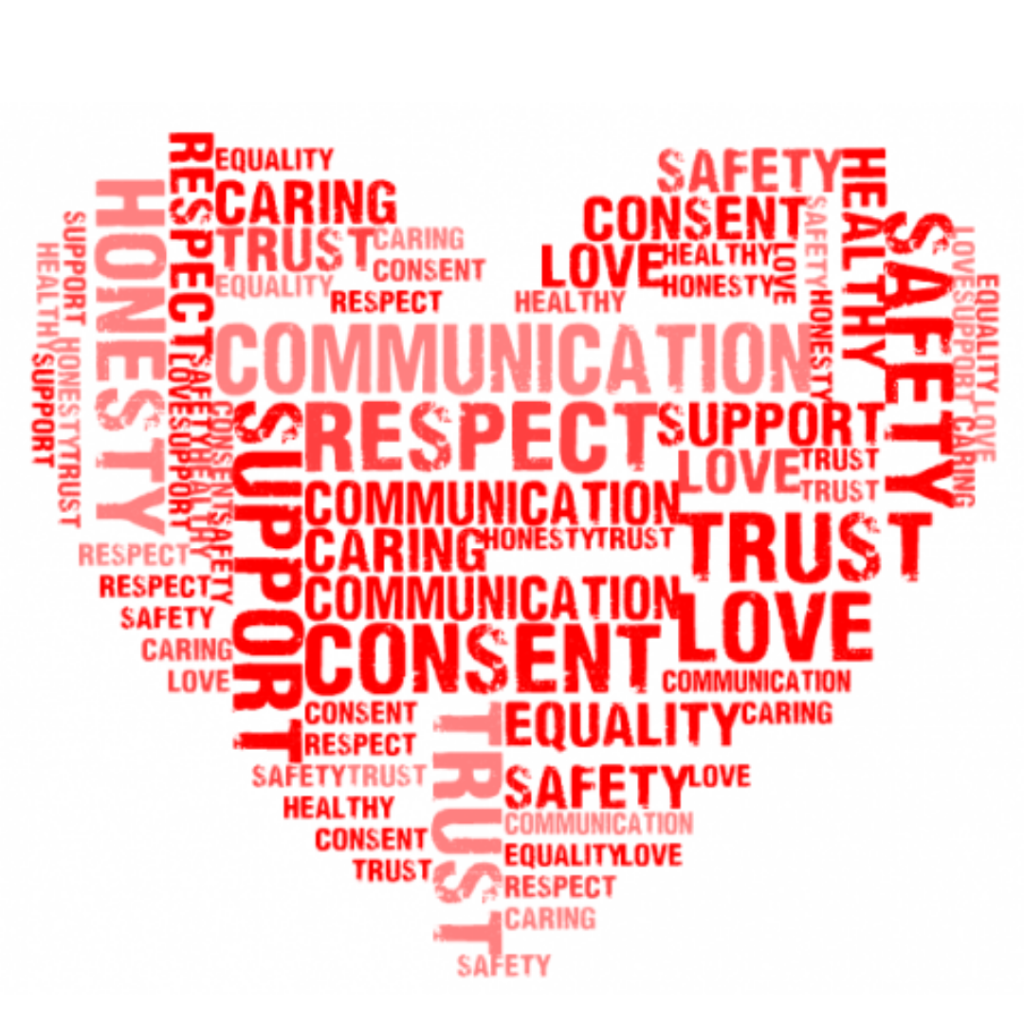Teen Dating Violence and Awareness Month
February is National Teen Dating Violence Awareness and Prevention Month. This is an issue that impacts everyone – not just teens – but their parents, teachers, friends and communities as well. Together, we can raise the nation’s awareness about teen dating violence and promote safe, healthy relationships.
- Dating Basics for a Healthy Relationship
- Learn about Healthy Relationships
- The importance of personal safety
- Find ways to support others
How Do I Get Help?
If you know of a teen or parent that could benefit from speaking to a caring, well-trained peer advocate, please connect them with the National Dating Abuse Helpline, a project of the National Domestic Violence Hotline, at 1-866-331-9474, by texting “loveis” to 77054, or through live chat at loveisrespect.org.
Local Resources: Hope’s Door, One Love
Tips for Setting Screen Time Rules with Your Kids
1. “You show, I observe” time, once a month —
This involves having your teen scroll on their social media for a few minutes while you sit with them. You get to see what comes up and you don’t react or critique, just observe. And then a day or two later is when you can reconvene to debrief a bit. Not to be judgmental or mad, but to think together about some messages and dynamics you both noticed on your teen’s social media.
Pointer: try to schedule a day, like the first of each month, in which this will occur somewhat regularly.
2. Same as above, but do this exercise twice a month
3. Same as above, but with social video gaming platforms and specific games, such as Roblox, Discord, Legend of Zelda, Minecraft, etc.
4. Everyone inventories their own screen time. Steps for conducting a family screen time inventory:
a. Agree on a time to share findings, such as at two dinners from now
b. Determine the method for tracking screen time that works best:
- Check device settings to see if time spent gets recorded
- Estimate time spent on different apps (e.g., Instagram, Facebook, TikTok, Snapchat, YouTube, Netflix, email) based on an average day
- Log screen time for one day and estimate for the week
c. Each family member records their own screen time using the chosen method.
d. At the agreed time, share findings with the rest of the family.
5. Maximum of 1 hour at a time of video game play without a break
6. Matching offline activity time for an equal amount of time engaged in online entertainment. For example, after scrolling TikTok for 20 minutes, maybe they help with cooking for that same amount of time.
7. Devices away at meal times
8. Devices out of the bedroom for sleep every night of the week
Read more at ScreenAgers.
Volunteer Opportunities
There are a variety of volunteer opportunities at awesome nonprofits throughout Westchester and Putnam Counties. To view these opportunities, please check out Volunteer New York!
Upcoming Events and Webinars
Weekly Spotlight Family Support Groups
From our partners at Drug Crisis in Our Backyard, weekly Spotlight Family Support Groups, held virtually every Tuesday and Wednesday via Zoom. Spotlight on Recovery is a Family Educational and Support Group for families struggling with a loved one misusing substances. For more information, click here.
The Parent Support Network
The Parent Support Network is a program of The Youth Mental Health Project that seeks to provide support for parents and guardians who are concerned about the mental health of their children through confidential, peer-to-peer meetings. For a list of upcoming virtual meetings, click here.
February 7: Opioid Prevention in the Home and in the Community
Captain Michael King from the Substance Abuse and Mental Health Services Administration (SAMHSA) will be highlighting what he has seen in the field regarding opioid addiction as well as sharing examples for what communities can do for opioid addiction prevention and recovery. He will also share resources that can be utilized by parents, schools, and communities. Register now.
February 8: I Don’t Need Help
Why do people sometimes reject help? Discuss the reasons why people refuse mental health care and how to respond & cope in this one-hour seminar with a licensed therapist. Register now.
February 9: Responding in a Mental Health Emergency
We know what to do when someone breaks their arm: brace it and go to the hospital. But what should you do when someone is experiencing a mental health emergency? Learn what causes crisis situations and the warning signs, how to respond, and what to do once the crisis has ended. Register now.
February 13: Supporting Emotional Regulation in Kids
Despite our best efforts to prepare children to manage big storms of emotions, they will struggle sometimes. Managing emotional storms takes emotional & physical maturity, and practice. In this webinar we’ll look at the warning signs that indicate an emotional storm is on the horizon, interventions to support children when they feel an emotional storm brewing, and how to reduce the impact of the storm. Register now.
February 16: Virtual Overdose Prevention Training
Naloxone is a prescription medicine that reverses an overdose by blocking heroin or other opioids in the nervous system for 30-90 minutes. Naloxone is administered by injection or intranasal. Following training, participants receive a kit by mail. Presented by our partners at Drug Crisis in Our Backyard.
Register by email: ssal@drugcrisisinourbackyard.com
February 21: Understanding Eating Disorders
Although our culture is preoccupied with food and weight, and disordered patterns of eating are very common, clinical diagnosis is less common. Register now.
March 1: Stress: Signs, symptoms, management and prevention
The term ‘stress’ is used loosely in our culture. What does it really mean and how vulnerable are you? Understand the biology of stress and explore realistic and practical ways to manage distress. Register now.
Please visit the ASK calendar here for more upcoming events and follow ASK on social media!


